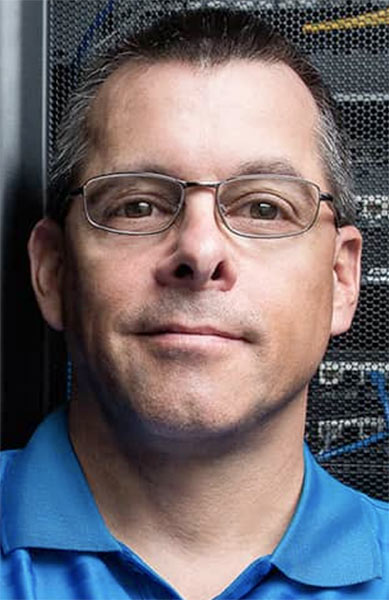

 With the latest "DNSpionage" attack, ICANN astutely prompted domain name holders to fully deploy DNSSEC on their names. Afilias absolutely supports this and encourages the same. In this post, I remind you of why DNSSEC is important and our continued role. Afilias has a long history in the development and advocacy of DNSSEC. In 2007, we partnered with Public Interest Registry to help found dnssec-deployment.org. more
With the latest "DNSpionage" attack, ICANN astutely prompted domain name holders to fully deploy DNSSEC on their names. Afilias absolutely supports this and encourages the same. In this post, I remind you of why DNSSEC is important and our continued role. Afilias has a long history in the development and advocacy of DNSSEC. In 2007, we partnered with Public Interest Registry to help found dnssec-deployment.org. more
 The ICANN community is currently in full congratulatory mode because the team responsible for the delivery of the Phase 1 Final Report of the Expedited Policy Development Process on gTLD Registry Data (EPDP) has managed to do so in a record-breaking seven months. The GNSO Council approved the Final Report in a special meeting on 4 March 2019, and the report will now be sent to the ICANN Board for consideration and hopefully adoption. more
The ICANN community is currently in full congratulatory mode because the team responsible for the delivery of the Phase 1 Final Report of the Expedited Policy Development Process on gTLD Registry Data (EPDP) has managed to do so in a record-breaking seven months. The GNSO Council approved the Final Report in a special meeting on 4 March 2019, and the report will now be sent to the ICANN Board for consideration and hopefully adoption. more
 Last week marked a significant milestone for the Neustar Registry team. After many months of preparation, we announced the successful migration of the .IN ccTLD onto Neustar's Registry platform. From now onwards, we'll be partnering with the National Exchange of India (NIXI) as the new Technical Services Provider for India's .IN domain. more
Last week marked a significant milestone for the Neustar Registry team. After many months of preparation, we announced the successful migration of the .IN ccTLD onto Neustar's Registry platform. From now onwards, we'll be partnering with the National Exchange of India (NIXI) as the new Technical Services Provider for India's .IN domain. more
 Last April, I shared information about a multistakeholder process that CIRA is part of, which seeks to identify and guide the development of policy around the Internet of Things (IoT), putting security at the heart of internet innovations in Canada. Since the formation of this process, we've made quite a bit of progress and I'm pleased to share some of that with you. more
Last April, I shared information about a multistakeholder process that CIRA is part of, which seeks to identify and guide the development of policy around the Internet of Things (IoT), putting security at the heart of internet innovations in Canada. Since the formation of this process, we've made quite a bit of progress and I'm pleased to share some of that with you. more
 Quick UDP Internet Connection (QUIC) is a network protocol initially developed and deployed by Google, and now being standardized in the Internet Engineering Task Force. In this article we'll take a quick tour of QUIC, looking at what goals influenced its design, and what implications QUIC might have on the overall architecture of the Internet Protocol. more
Quick UDP Internet Connection (QUIC) is a network protocol initially developed and deployed by Google, and now being standardized in the Internet Engineering Task Force. In this article we'll take a quick tour of QUIC, looking at what goals influenced its design, and what implications QUIC might have on the overall architecture of the Internet Protocol. more
 Opposing parties continue to debate whether WHOIS should stay after the General Data Protection Regulation (GDPR) took effect across the EU in May 2018. While the Internet Corporation for Assigned Names and Numbers (ICANN), which oversees WHOIS, is looking for ways to be GDPR compliant, experts from various fields are contemplating the problems pointed out by officials. more
Opposing parties continue to debate whether WHOIS should stay after the General Data Protection Regulation (GDPR) took effect across the EU in May 2018. While the Internet Corporation for Assigned Names and Numbers (ICANN), which oversees WHOIS, is looking for ways to be GDPR compliant, experts from various fields are contemplating the problems pointed out by officials. more
 The Caribbean can create a unique flavour on the Internet by using effectively managed and financially stable Country Code Top-Level Domains. Speaking after ICANN's first Caribbean edition of its Latin American and Caribbean Internet Roadshow (LAC-i Roadshow), recently held in Turks and Caicos Islands, Albert Daniels said the event yielded "very high interest" in the management and operations of the local ccTLD, .tc. Daniels is ICANN's senior manager of stakeholder engagement in the Caribbean. more
The Caribbean can create a unique flavour on the Internet by using effectively managed and financially stable Country Code Top-Level Domains. Speaking after ICANN's first Caribbean edition of its Latin American and Caribbean Internet Roadshow (LAC-i Roadshow), recently held in Turks and Caicos Islands, Albert Daniels said the event yielded "very high interest" in the management and operations of the local ccTLD, .tc. Daniels is ICANN's senior manager of stakeholder engagement in the Caribbean. more
 The Eastern Caribbean island of Grenada has been selected as the venue for the fifth regional meeting of the Caribbean Internet Peering and Interconnection Forum, CarPIF, set for June 12 to 13. The annual international event, which draws Internet giants like Facebook and Google to the region, is focused on developing the Internet in the Caribbean by improving policy and building relationships between network operators and content providers. more
The Eastern Caribbean island of Grenada has been selected as the venue for the fifth regional meeting of the Caribbean Internet Peering and Interconnection Forum, CarPIF, set for June 12 to 13. The annual international event, which draws Internet giants like Facebook and Google to the region, is focused on developing the Internet in the Caribbean by improving policy and building relationships between network operators and content providers. more
 Many companies have the occasional "oops" where they send email they probably shouldn't have. This can often cause a decrease in reputation and subsequent delivery problems. Some companies rush to fix things by changing domains. Brand new domains, those registered less than 30 days, have really bad reputations. Blame the spammers and scammers who exploited a loophole and sent tons of untraceable spam from newly registered domains that they then abandoned without paying for them. more
Many companies have the occasional "oops" where they send email they probably shouldn't have. This can often cause a decrease in reputation and subsequent delivery problems. Some companies rush to fix things by changing domains. Brand new domains, those registered less than 30 days, have really bad reputations. Blame the spammers and scammers who exploited a loophole and sent tons of untraceable spam from newly registered domains that they then abandoned without paying for them. more
 The anniversaries of these milestones remind us of the economic and social returns we have seen from ambitious Federal research and development programs. These events were milestones... the manned spaceflight program and the development of digital telecommunication networks from Morse's telegraph to early electronic digital computers and telemetry experiments, the SAGE early-warning system and eventually the ARPANET and the Internet. more
The anniversaries of these milestones remind us of the economic and social returns we have seen from ambitious Federal research and development programs. These events were milestones... the manned spaceflight program and the development of digital telecommunication networks from Morse's telegraph to early electronic digital computers and telemetry experiments, the SAGE early-warning system and eventually the ARPANET and the Internet. more
 By definition "any word" or "any combination of words" can function as trademarks, but whether alone or combined for that purpose no use can overrule their ordinary meanings, support their removal from the public domain, or prevent speculation or use of identical or confusingly similar words by businesses other than rights holders. The fact is, all words that are not coined found in dictionaries, word lists, and circulating in world cultures are generic. more
By definition "any word" or "any combination of words" can function as trademarks, but whether alone or combined for that purpose no use can overrule their ordinary meanings, support their removal from the public domain, or prevent speculation or use of identical or confusingly similar words by businesses other than rights holders. The fact is, all words that are not coined found in dictionaries, word lists, and circulating in world cultures are generic. more
 Microsoft is shipping a patch to eliminate SHA-1 hashes from its update process. There's nothing wrong with eliminating SHA-1 - but their reasoning may be very interesting. SHA-1 is a "cryptographic hash function". That is, it takes an input file of any size and outputs 20 bytes. An essential property of cryptographic hash functions is that in practice (though obviously not in theory), no two files should have the same hash value unless the files are identical. more
Microsoft is shipping a patch to eliminate SHA-1 hashes from its update process. There's nothing wrong with eliminating SHA-1 - but their reasoning may be very interesting. SHA-1 is a "cryptographic hash function". That is, it takes an input file of any size and outputs 20 bytes. An essential property of cryptographic hash functions is that in practice (though obviously not in theory), no two files should have the same hash value unless the files are identical. more
 Recently, the DNS has come under an extensive attack. The so-called "DNSpionage" campaigns have brought to light the myriad methods used to infiltrate networks. These attacks employed phishing, system hopping via key exfiltration, and software zero day exploits, illustrating that many secure networks may not be fully protected. more
Recently, the DNS has come under an extensive attack. The so-called "DNSpionage" campaigns have brought to light the myriad methods used to infiltrate networks. These attacks employed phishing, system hopping via key exfiltration, and software zero day exploits, illustrating that many secure networks may not be fully protected. more
 Telesat will use Google's network operating system. Telesat is making progress. Within the last month, they announced a launch contract with Blue Origin, a successful antenna test with Ball Aerospace and completion of system requirements reviews, but perhaps more interesting is an agreement to use the software defined network (SDN) platform Google has developed for their Project Loon. more
Telesat will use Google's network operating system. Telesat is making progress. Within the last month, they announced a launch contract with Blue Origin, a successful antenna test with Ball Aerospace and completion of system requirements reviews, but perhaps more interesting is an agreement to use the software defined network (SDN) platform Google has developed for their Project Loon. more
 Edward Mc Nair will deliver the keynote address at the next regional meeting of the Caribbean Network Operators Group (CaribNOG), to be held in Bridgetown, Barbados from April 10 to 12. The featured talk will take place on Thursday 11 April at 9 am AST. A live netcast will be available. Mc Nair is the Executive Director of the North American Network Operators Group (NANOG). more
Edward Mc Nair will deliver the keynote address at the next regional meeting of the Caribbean Network Operators Group (CaribNOG), to be held in Bridgetown, Barbados from April 10 to 12. The featured talk will take place on Thursday 11 April at 9 am AST. A live netcast will be available. Mc Nair is the Executive Director of the North American Network Operators Group (NANOG). more
Sponsored byCSC

Sponsored byWhoisXML API

Sponsored byVerisign

Sponsored byDNIB.com

Sponsored byIPv4.Global

Sponsored byVerisign

Sponsored byRadix
